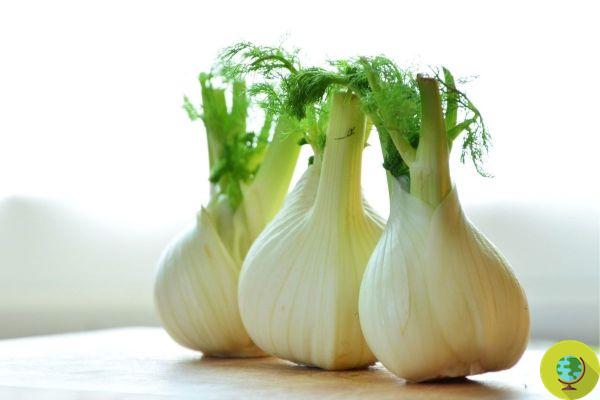
The waste from the fennel processing chain is transformed into a source of valuable nutritional elements
Don't store avocado like this: it's dangerousThe waste from the fennel processing chain can be transformed into a source of valuable nutritional elements to be used for the preparation of food supplements. The path towards sustainability also passes through here.
The attention towards environmental sustainability, the reduction of waste and a conscious use of natural resources - especially by the youngest - is growing. The aim is increasingly for a so-called circular economy to replace the linear system take-make-dispose - or take-disposable, which does not include recycling or recovery of materials. The circular system, on the other hand, aims to minimize the use of new resources, enhancing the recovery of waste and used materials, giving new life to products that until a few years ago would have populated landfills.
We are also trying to introduce a sort of circular system in agriculture made up of sustainable crops, minimum use of non-renewable resources, harmonious and balanced development while respecting the ecosystem. The research group of Food Chemistry of the Pharmacy Department of the University of Naples Federico II, coordinated by Professor Alberto Ritieni, is moving in this direction in a project aimed at encouraging the use of by-products of the fennel supply chain. The project, financed by the Campania Region, is symbolically called FENNEL (which in English means precisely fennel) - an acronym that effectively summarizes its mission: to favor the use of fennel waste for the purposes of the bioeconomy useful for the development of agricultural businesses.
Fennel is a particularly expensive and not very green crop: 60% of the biomass collected, in fact, represents waste - it is well over half of what is produced. Surprisingly, however, part of these waste can be considered as an added value to be used in nutraceutical or food companies and be used for the preparation of supplements.
Various polyphenols have been identified in the waste from the fennel production chain (Foeniculum vulgare Mill), including quercetin, luteolin or epicatechin, which are known to be gastro-resistant. Experiments were then conducted in a simulated digestive process by comparing two nutraceutical formulations, the first non-gastro-resistant and the second gastro-resistant, prepared with fennel waste. It has been observed how the nutraceutical molecules deriving from these wastes, suitably conveyed in the form of gastro-resistant capsules capable of reaching the colon area, can be effectively absorbed and transferred to the blood flow. From waste a precious resource for our health.
Source: Federico II University
We also recommend:
- Fennel: the fantastic properties, calories and how to best use it
- Fennel: 10 recipes to enjoy them at their best
- Fennel seeds: 10 amazing health benefits
- Fennel herbal tea: the extraordinary properties, how to prepare it and contraindications (also for children)


























